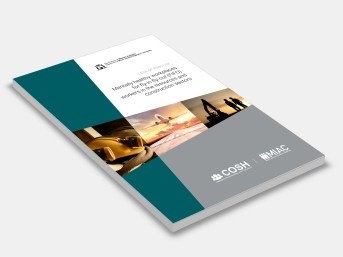Mentally healthy workplaces for fly-in fly-out (FIFO) workers in the resources and construction sectors
WorkSafe Western Australia
This code of practice provides guidance on creating and maintaining a mentally healthy workplace through:
• providing an environment that promotes good health and wellbeing
• the application of a risk management process to avoid or minimise the harm from psychosocial hazards and risk factors and develop a mentally healthy workplace
• developing response strategies (intervention) for workers when there are concerns regarding work-related stress or exposure to psychosocial hazards and risk factors
• providing an environment that supports recovery
It applies to workplaces in Western Australia that utilise fly-in fly-out (FIFO) work arrangements. This includes:
• resources operations (minerals and petroleum sectors) that are engaged in activities such as exploration, construction, mining or processing, or support such activities (e.g. drilling contractors, facilities management)
• construction work not related to resources operations.
Note: Although specifically covering FIFO work arrangements, the code of practice may also be a useful source of information for residential and other long-distance commuting arrangements [e.g. drive-in drive-out (DIDO)] where people are working away from home.
The terms used in this code of practice are intended to have a broad and flexible application, for use across the resources and construction industries.
The term workplace usually means the physical location where someone works. However, the legislative definition of workplace varies and employers should use this and other terms in the context of the legislation applicable to their circumstances.
The FIFO work arrangement is a method of employing people in remote areas that are beyond daily commuting range of their permanent place of residence. Workers are transported temporarily to the work site instead of being permanently relocated, and are provided with accommodation for the duration of their roster. Those engaged in FIFO work arrangements work on a rotational basis, with a regular roster at the workplace alternating with intervals of time at their permanent place of residence.
Arrangements will differ across individual workplaces and industries. The code of practice provides high-level guidance for a risk management approach, which should be tailored to the unique demands of each workplace.
Developing and maintaining mentally healthy workplaces can be challenging because of the complex interplay and changing nature of risk factors. Effective consultation and communication are critical, and a proactive and integrated approach is required.
It is recognised that responsibility for mental health goes beyond the workplace. Other agencies and services have a contribution to make in ensuring access to community services to keep people well, out of hospital, and connected to family, friends and the community.
Contents:
1: Introduction
2: Overview Of Risk Management Approach
3: Leadership And Workplace Culture
4: Identification Of Psychosocial Hazards And Risk Factors
5: Assessing The Risks
6: Controlling The Risks
7: Monitoring And Review
8: Communication And Consultation
9: Responding To Reports
Department of Mines, Industry Regulation and Safety
